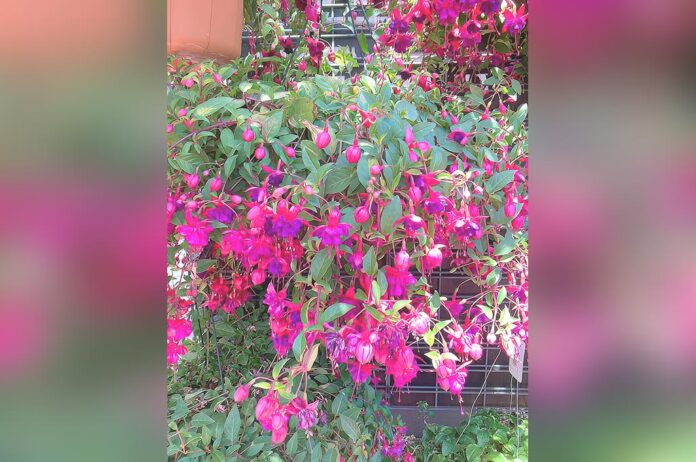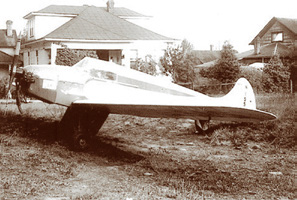“I bought my fuchsia earlier this spring, and now it’s not as bloomy. It’s sad looking. Looks like this,” read the text message to our store phone.
The message had popped up early, very early, in fact, and I got to see it while also tasting the first (and best) sip of my daily, two-shot, extra-hot, short latte.
I consider myself wonderfully lucky to start the day with coffee in one hand and garden mystery in the other.
Questions came immediately to mind: Are the leaves burning? (After the first sip) Are they burning from the middle of the leaf or from the outer tips? What size of pot is this plant in? How is the sun shining in the photo? What other plants are doing better (or worse) than the one in question?
There’s no “blame” here, mind you.
Rather from a photo (or two), I’m trying to read the signals that plants often give in plain sight. In a way, I’m trying to piece together what may have happened last week (or last summer, depending on the plant), and from those signs and signals, I’ll have to figure out the best way to go forward.
It’s part detective work and part doctor.
These questions about gardens and plants come during all the months of the year, which is encouraging because I like that people notice trees and plants that surround them. It matters.
But it’s this time of year in particular, after much of the early spring planting is finished, that the majority of concerned questions come. And they come via texts, email, and in-person… usually via plastic bags with an assortment of leaves and branches.
It’s, of course, completely expected. As gardeners, we have planted our flora with care, added water, hopefully, some wonderfully organic nutrients as well, and hovered over them enough to notice its general “happiness.”
And it’s this “hovering over” time of year that I think makes gardening particularly fun and can make all the difference for the future too.
That fuchsia? Its leaves were beautifully dark green. (No burn.) The branching was wonderful, and the basket was full, but as was described, without those prolific blooms, it did look more sad than usual.
But zooming in closer revealed a bit more. When the blooms drop on a fuchsia basket, they leave, on the plant, a seed pod that looks very much like a small dark grape. By plucking those (it often feels just like picking berries in the field), it sends the signal back to the plant to rebloom.
Plucking those now will yield blooms several weeks from now.
(For the ultra curious: Planting those seed pod “berries” will grow another fuchsia, but it won’t be the same fuchsia as the one it came from. Much like if you were to plant the seeds from the apple you just ate won’t give you the same apple tree.)
This ultimately brings me to the point: What we do now as gardeners, the plucking, the clipping, the inspecting of our favorite plant while drinking our morning coffee, the extra watering after coming home from work, the removing of an old bloom here and there, all pays dividends weeks and months from now.
Almost by definition, in gardening, we have learned to resist the immediate reward in preference for something better that may come much later. In other words, what we do now, at the moment, the small decisions we make almost imperceptibly every day (and the decisions we don’t make) can have all the difference in our garden.
Curiously though, in reverse, it sort of means that what we see now is the result of the things we did (or didn’t do) days, weeks, or years before. (Which can make things very interesting.)
Which also speaks for life throughout the garden too. (I’m loath to say life outside of the garden because are we ever really outside of the garden?) Often problems (and blessings) we face now in other areas of our life (and community and nation) are from things we did or didn’t do when the time came.
Looking forward, though (and not back), is when we garden our best. So trim, cut, pluck, give encouragement and nutrients, even texting a photo or two of something you’re curious about, is enough to reset the trajectory for your garden (and possibly, life.) Your future self will have you to thank.




















